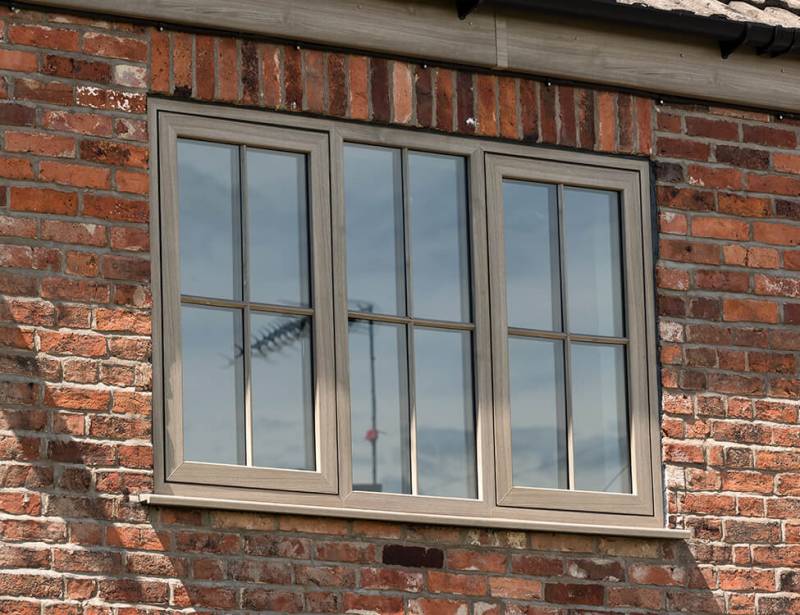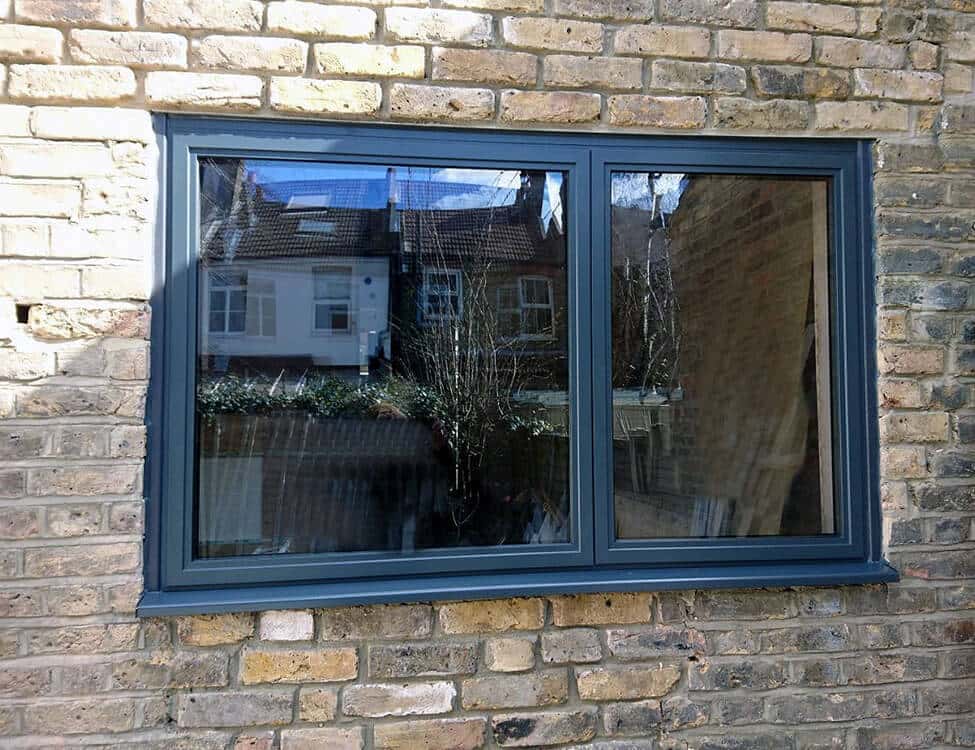Which Is Better for Winter: Double Glazed uPVC or Aluminum?
The winter has arrived and with it comes the renovation rush to upgrade for a warmer home. Every homeowner here in the UK is getting ready for the winter months, many of whom are deciding to renovate their exterior to be far more weatherproof than the winter before. Oftentimes, the first thing they renovate is their windows. They are opting for double glazing instead of single and more importantly, deciding which materials to use. When opting for double glazed windows, it’s important to understand the mechanics behind them before even thinking about which materials will suit you and your household.
In this article we go through how double glazed windows work, and which material you should use to implement them: uPVC or Aluminium.
The Double Glazed Mechanics
It’s commonly known that double glazed windows consist of two glass panes, however fewer people (especially among homeowners who are in the early stages of their home renovation) know what happens between those two panes.
Typically they’re filled with heavy inert gasses like argon. This in turn acts as an insulating barrier, preventing noise pollution and providing insulation. This effectively keeps the warmth outside the house when it’s summer and traps heat inside the house when it’s winter (as well as drowns out the noise from those pesky neighbours!).
Understanding this concept is important when you’re deciding on materials because the materials that accompany this noise/thermal barrier will be the deciding factor in how effective the window will be overall. To do that, you need to understand how to measure the overall effectivity of each unit across the different materials.
Measuring Energy Efficiency
Measuring a double glazed Window’s energy efficiency can be broken down into a simple science consisting of 3 main criteria: Heat Conductivity, Heat Insulation, and Prevention of Airflow. This will all be important further into the article you read.
Heat Conductivity:
If a window allows heat to pass through it, it counts as a heat conductor. The higher the heat conductivity, the more heat escapes from your house. Typically on an energy label, this would be measured by what is known as R-Values. It’s an equation that measures how much heat any material conducts.
High R-Values = High Heat Conductivity.
Heat Resistance
On the opposite end of the spectrum, heat resistance measures how a material prevents heat conduction. This is measured with what is known as U-values. You will also find this on an energy label. Instead of measuring how much of a heat conductor a piece of material is, this measures how much of an insulator a window can be.
Low U-Values = Better Insulation
Air Tightness
Though this doesn’t commonly appear as a unit of measurement, it contributes to the overall energy efficiency ranking. It’s measured because the amount of draught that passes through a door, or window contributes to a reduction in energy efficiency. The more air that passes through a unit, the colder the house gets.
Now that you know what to look for, you’re in a position to make an informed decision on which of the following is the best choice for your home.

uPVC Windows: Top Tier Thermal Performance
uPVC is one of the safest options for the winter, known for its ability to cover a wider range of problems in terms of weatherproofing capabilities.
Insulation Power
uPVC double glazed windows are well-known for their excellent insulating properties. Because of their great thermal resistance, uPVC frames are less sensitive to heat transmission. This means that less heat escapes through the window frames, keeping your home warmer even during the worst winters. Recall how we spoke about U-Values?
A strong example of how low uPVC windows can get in U-Values is here at Chigwell, we’ve achieved U-Values as low as 0.7 with our uPVC windows.
Durability
uPVC is a highly durable material, resistant to harsh winter elements such as rain, snow, and frost. It doesn’t warp, rot, or corrode, ensuring that your double glazed windows remain effective at providing insulation year after year. This durability is crucial in maintaining energy efficiency and protecting your investment.
Low Maintenance
During the winter, the last thing you want to worry about is maintaining your windows. uPVC windows are virtually maintenance-free. They don’t require painting or sealing, and a simple wipe-down with a damp cloth is usually sufficient to keep them clean.

Aluminum Windows: An Alternative To Light Bulbs
While aluminum windows might not be as commonly associated with winter insulation as uPVC, they have their own set of merits that make them suitable for specialised situations.
Slim Sightlines That Maximise Light
Aluminium frames are distinguished by their slender and sleek appearance, which allows for greater glass areas. This might be beneficial during the winter because it enables more natural light into your home.
While they may not be as effective as uPVC in terms of U & R Values, their energy efficiency comes from decreasing the need for artificial lighting. Here at Chigwell, we’ve decided to implement our ultra-slim frames with even vaster glass panels. To maximise light into the household.
Strength and Durability
Aluminum is a robust material that can withstand extreme weather conditions. It won’t rust or corrode, making it a reliable choice for homes in areas with severe winter weather. While aluminum frames conduct heat more readily than uPVC, modern thermal breaks and insulating technologies have improved their overall energy efficiency. No amount of gale-force winds, loose tree branches, hail, or storms will create wear and tear.
So Which Is Better for Winter?
It depends on which part of the winter you want to tackle. If you’re renovating specifically with the temperature in mind then the best choice is uPVC. If your main concern is maximum insulation and energy efficiency during the winter, uPVC is the clear winner. uPVC windows are excellent at keeping the cold out and the warmth in.
But if you’re renovating for the macimum amount of light and aesthetics, we’d urge you to prioritise aluminium. It maximises light intake in winters with grey skies and it can withstand the worst of weather.
Have you come to a decision?
If you’ve concluded that uPVC is the material for you, visit here for a look into designer and energy efficient uPVC windows. But if you’re after some of the slimmest sightlines in the industry, visit our aluminium windows page for more information.
Alternatively, you can always speak to a professional to talk about your options.
Get a quote today
If you would like a quote on our incredible range of windows, doors and glazed extensions then please get in touch with us today.
Book an appointment
If you would like to visit our showroom or to have one of our experienced team members come and visit you then book an appointment today.

Double Glazing in Essex and the South East
Chigwell Window Centre offer a range of home improvements to homeowners in Essex and the surrounding areas. Whether you want premium bifold doors or high-quality uPVC windows, we have something for everyone. Start your free online quote today and get a competitive double glazing cost.
Start Your Quote














